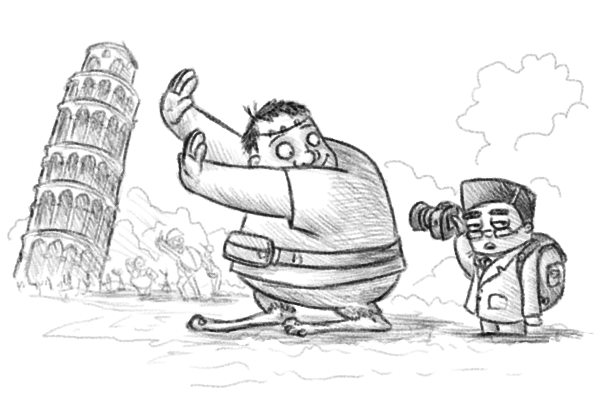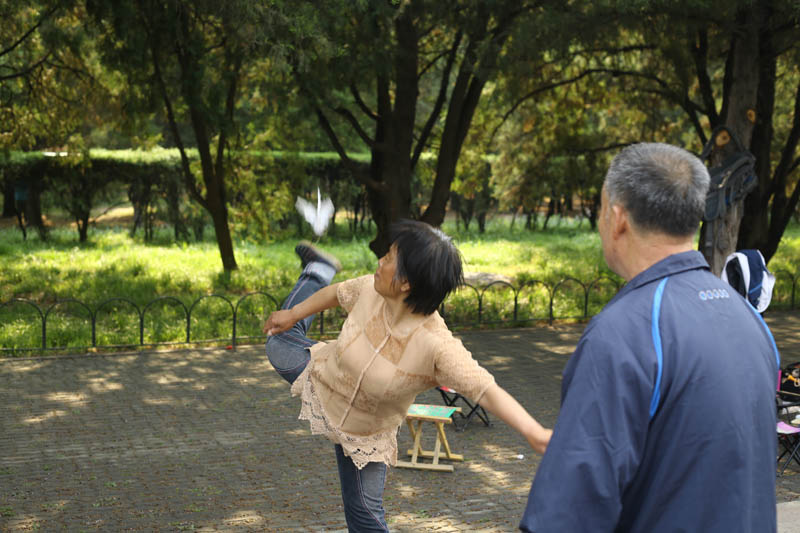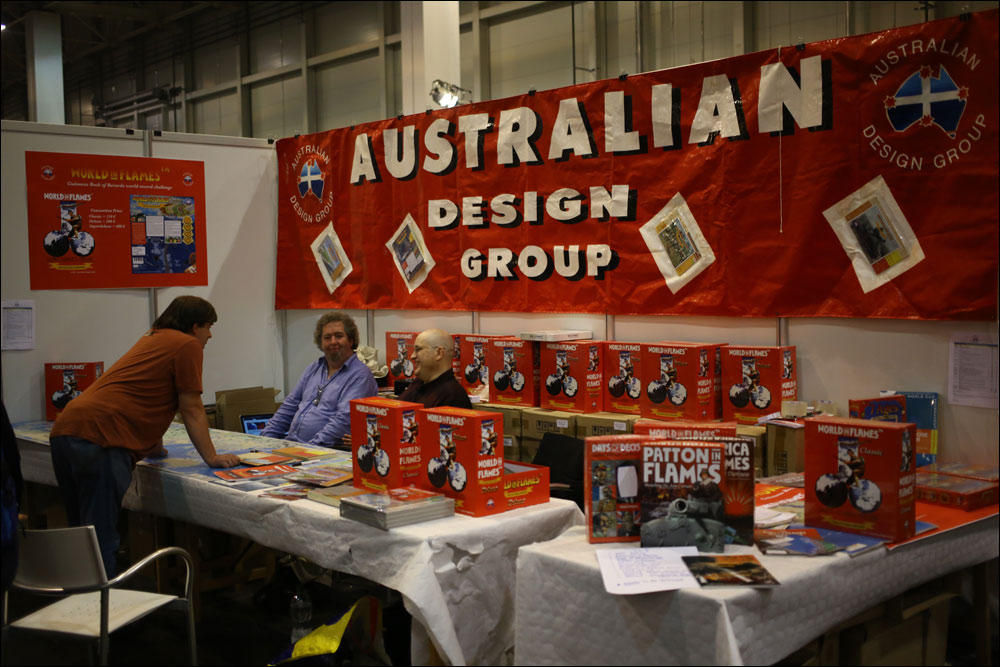Cross cultural difference in games

Two years impetus waiting for material about the cultural difference in the perception of games in different countries. I still do not pretend to be complete and consistent, but I can already tell you something. Welcome to a selection of limited cultural stereotypes about desktops and business.
Let's start with Japan . At first glance, there they are uporot tight and constantly like children rejoice strange. In the booth from the phone, they poured water and let the fish out; they make chocolate from green tea, created the most strange stuff, draw anime, and so on. Cultural difference inspires. But then behind all this the harmonous logic begins to be traced.
They approach games as if they were at home: they have very small and compact apartments, small courtyards, and so on. They try to reduce everything that is possible. And to select things in such a way that there were not very many of them, but each one was directly pleased with her appearance, was filled with impressions. Almost never the Japanese will have a pile of things at home — everything is only the most valuable. This means one paradox: there is almost no correlation between the size of the box and the price of the game.
In Russia it is direct, in Europe there is a less pronounced pattern, but the Japanese are not like that. For example, how do you like the game for 600 rubles the size of a little more than a matchbox, where is this?
')

For the market professional the most amazing thing here is the lodgement.
The rules are simple: you need to hide somewhere in the snowman's house and take a defocused blurred picture on your cell phone. Because usually they shoot a snowman. Then give a photo to everyone in the company, so that they find the figure. But the joke is that if they find his mark instead of yeti, you won the round. Behind these two lines is a whole wonderful strategy that unfolds in several layers, just imagine. And the figures are carved beautifully. They are nice to hold in their hands. That's what a Japanese game is.
They themselves say they adore skill and balance games. As a Japanese friend said:
“You see, you are big, clumsy people. And we really love accuracy and accuracy. Therefore, we have a lot of games where you have to do something with your hands. And you will not be able to play our games on an equal footing with us, because you have more hands. We may be making the components bigger for you. ”In general, reflects the essence. The only moment: about the big and clumsy - most likely, it is about the US market, because they are most familiar with it. But it is not exactly.

One of their games, you must release the ball on the suspension, which is now top-right
Like people and partners - very open, positive, friendly. Such kind geek geeks. But they are very tough negotiators in the sense that they have incredible patience and flexibility. To achieve certainty from them is a long time.
If you want to immerse yourself in the wonderful world of negotiations with the Japanese, read the book “Gaijin” Clavell (this is the second after the “Shogun”, not connected with the plot).
If you can look at the world a little freer, then very quickly you begin to understand them. And they begin to understand you.
Yes! And there are people who absolutely wildly irrationally love us as a country. If the Japanese were in Vladivostok or were driving through the Trans-Siberian Railway - all this is like for us to trade with real live Martians.
China
About China, the experience is ambiguous, because in fact China is several countries in one cluster. We have extensive experience in production communication. In business, there is a feeling that they have Bazar-on-Virgo there. It is very important to clearly control every step, because surprises occur anywhere, somehow and not always in a legal field. At first it seemed to us that tricking a potential adversary was part of their strategy, but then it turned out that they were also getting along with each other. Most likely - they are just incredibly missed in the issues of different life hacking for deliveries, and they do all this not from evil, but simply because it is an environment with high competition. In general, it is better to negotiate only in paper with a signature. If everything is good, you must have a B. plan. In general, even a few B. plans are even better.

Even their grandmothers are very athletic.

The games are pretty tech.

When we decided to launch a kite in Beijing on one of the squares, about 20 people immediately approached, and a special expert was found among them. It pleased everyone without measure.
At the same time, the same Hong Kong or part of Shanghai is another region, everything is much more clearly, let's say, in the American spirit.
In negotiations they like group meetings and big dinners very much. Strong in the team, feed on energy from each other. As a rule, the lower the person in the structure of subordination, the less definite answers he gives and more often changes his mind. If there are no bosses over him, he becomes open and friendly as soon as he realizes that you are “yours.”
According to the games - they produce a lot of very cheap things for the domestic market, they solemnly follow the ideals of filibusters regarding everything they see from intellectual property, and they have a centuries-old tradition of different board games. Children play on the streets of old cities, adults play in cafes - but almost everything is traditional, that is, not changing for the last couple of hundred years exactly, except sometimes plastic instead of wood.
In recent years, they have changed the consumption model: they began to earn more and fell in love with expensive things and expensive brands.
UAE and the region nearby
Arab peoples have become very wealthy. Conventionally, imagine that you have an infinite amount of money, and you care not so much the price as the fact that you will not be deceived. Hence the consequence - they want to work only with the best in everything. For them it makes no sense to work with number 2, it's just irrational. They like everything new and interesting, they want to be ahead of the rest. If you show something that will become a trend next year, or what is on the bleeding edge of technology, they will happily consider.
They are not so good enough, but located, courteous. There is a charm that extends to business relationships. Very polite in the negotiations, they will listen and hear everything. But at the same time they will clearly stand in their own position. Rational enough, they like to play “clearly designate their position, we say ours,” but they usually don’t start with that. Sophia, our specialist in contacts with extraterrestrial intelligence, believes that if they voiced the position, then they keep it strictly, and they are difficult to reverse from it. My experience says that they can be “tired” for about an hour and a half round of negotiations, after which the most interesting part begins.
At any level, the climax of the negotiations can be interrupted for prayer if the time is right.
Sophia, one of the sheikhs, called her in the course of the negotiations: he said that she would be his beloved wife, albeit the third.

Sonya stopped counting plane tickets after the thousandth. Much of this story is her experience on Earth.
In games - they love chic. Kalah was historically popular with them, but they played it not with shells, but with precious stones. It seems that logic suggests that if you can not drink and hold women’s hand in public, then hookah games should be very popular. On the whole, this is about it, but more precisely, I will not say here, we have almost no realized business contacts.
Europe
The coolest, because the Germans are understandable for us in the region. No wonder they were very friendly people to us (albeit before the Great Patriotic War). Pedants who do everything smoothly and according to the script. Well-debugged, everything is calculated. A bunch to a handful. Conservative. Their games are abstract eurogames. Very fond of things like Kvorkla. But at the same time, these same people were able to create the most beautiful Kukhandel, which combines accurate calculation and the wildest bluff. In general, no, no, but they can be very alien. Beautiful as partners.
Their nastolk stores look as if the notion of “spontaneous buying” is a science fiction genre.
In KaDeWe, in the desk section there are even separate components to buy a figure instead of a lost one. Usually this happens only in specialized stores, and then almost in bookstore. We got it from them, by the way, we can also buy a figure from us.

Guess the country by photo
In business, they like smooth graphics. They will strangle you for stability: for example, if you grow rapidly, they will not trust you until you stabilize. Because something you are making is strange.
Very obligatory and reliable, and they work reliably by verbal agreement. From around the world, perhaps, they and the Americans are closest to our cultural standards of understanding and business ethics.
Then the Spaniards and Italians . They are never similar, but they behave in approximately the same way (just for different reasons, with different levels of emotions and in different styles). The bottom line is that they are cool guys who are relaxed through life. Everything is done easily, cheerfully, but you can agree on something with them, and then they suddenly come back and say that they have changed their minds. Something rolled. Can pull, can not pull. Depends on mood. In general - very, very friendly, and pleasant to work with.
Greece is a country of siesta. At first glance, it is not at all clear how everything works there, because such terms as “deadline” and “clear agreement” seem to have no analogues in the language. At least they are not always understood there. But if you respect and praise the Greek, how he has done something cool, his pride will leap up, and he will do: “I can do it even better!” And support his reputation. When the mood goes down, they are super efficient.
The French are rather messy, but with style. In the business world are similar to the Germans, in the game - they love beauty very much. But their world is more entropic and sudden, not at all square-nested. The feeling that they want to do everything in order, but it turns out in the end plot twist. It has beauty and its charm. Everything the French do becomes a romantic ballad.
Czechs are almost "our" people from the USSR, only more gothic or something. They have beautiful shops, excellent sellers inside, many original games, they have their own star - Vladya Khvatil from CGE. In the negotiations are understandable. About our features will be in the end, a lot applies to this market.
The British are snobs in the good sense of the word. Like many other nations on the islands (where there are far fewer people than jobs), they try to do little, but very well, as a result, they are selective. At the same time, their young people travel a lot and it turns out that it is the British who are often the first to get their desktops on the road. They have a very team culture: if they agreed to act together, they will calmly do it until victory.
The craziest guys in Europe are the Dutch . At least the fact that when they arrived in Moscow, they decided to conduct several tests of their games on the street says about the degree of their inadequacy. And one of the first to whom they got to the bottom, turned out to be policemen on Tverskaya. Because they stood with a bored look, and they clearly had to please the Dutch games. They were playing in the subway while they were driving (we just turned away, and they had already found the peasant welder and explained something to him with gestures). We have been working with them for a long time.
As a rule, European markets follow the German or French. For example, in Spain there are no particular differences in the lists of hits: the world has a steady influence on them. But somewhere something breaks through, for example, somewhere war games love more, somewhere they are fan of party games (Latvia), the different role of the popularity of new products.
USA
The world's largest market nastol - this is the United States. And it continues to grow. Then the German market is interesting, then the rest.
It all depends on the state in which the partner. The country is big, each region has its own characteristics. New Yorkers are super-moving, everything looks like Moscow, with them it is clear that there are common interfaces. Not super clear, but you always understand what is happening. This is generally very characteristic of them: no matter how the deal goes, it is always clear what and how, what status. Very inspiring confidence.
In California, more relaxed and happier people. There is the core of the IT movement, and therefore a greater percentage of people who are ready to respond to a novelty, quickly drag it over their head and throw it out. Such a society of beta testers with a bunch of new pieces in the queue. In general, each region has its own peculiarity, for example, Texas is patriotic. In general, America is close in business mentality to us. The important difference is that they have a family doctor and a family lawyer: it is absolutely normal for them to sue, and there is no aggression in this. Documents should be read as not in themselves. Another peculiarity is that their business framework is much more obvious and the system clearly makes it lyuly for all the wrong actions. In this regard, we have lyuli after a random time, either immediately and a lot, or not at all - you never guess in advance. And they have a lot of rules and regulations - and you must immediately follow everything exactly from the first day. For example, if you sell a position to someone, it is unlikely that in negotiations it will be possible to change their list of criteria for a product, only the product itself.
They play everything, but they like good settings very much. Probably, the setting for them determines the class of the game.
Still different
There were rare contacts with Vietnam (there is a Communist Party there!), Taiwan (the cunning of the Chinese plus the determination of the Japanese). In general, developing Asian countries are fairly honest businessmen who, because of development, often make concessions. They want to grow the economy, they are ready for compromises to enter new markets. If suddenly you want to take something from them, then for them it is a breakthrough into the world. But any international relationship is good for them.
Africa has its own games, but the market follows the British roughly.
In Micronesia - about the American.
Australia has its own rebels (well, no doubt), but the market is similar to the European average.

Theory
Michael Mizhal (Warsaw) distinguishes five axes in his work “Cultural Determinants of Board Game Preferences”:
- The difference in power (how much the players become equal in the game - that is, how much less strong members of the community are allowed the freedom of action within the framework of the games). In the Philippines, only the “high society” of the village was allowed to reach the final of the fighting of roosters. You can not just take and bring a rooster, you need to be represented.
- Individualism vs. collectivism: this is precisely the strategy of a strong predator against a cooperative game. An example is the style of the game of Europeans against the American.
- Avoiding surprises is when players like or dislike unusual situations. For example, the tendency to chance or the ability to work out a different interaction model in the game (not like in the real world). One region is German games (predictable as chess, games with full data), the other is many Korean things, where the main thing is the movement, and not the result.
- Sexual difference: what is permissible to play for men and women, and how they are equal in the game. In cultures where there is a difference, obvious male and female games are revealed.
- Long-term focus versus short-term - focus on the future, present or past, the depth of tactics. For example, games about building a network (like “Space truckers”) will not enter cultures with a focus on short planning.
Russia
We are fans of large boxes and beautiful, that is, with a good taste of decorated games. In the sense that starting a game with a bunch of components, but in a box where there is no “air” will be perceived as overvalued. There is a clear correlation: a small box is up to 500 rubles, an average is up to 800, a large one is 1000-1500, a very large one is up to 2500, an ultra megaphos is more expensive. About art - we almost do not enter the game without a good design.
We have quite a few common games of skill in comparison with the Japanese (because of the cultural code) and in comparison with the general Asian ones - because the tradition of skill games starts somewhere at the level of the kindergarten, and all such games a la classics, “banks »And further on the list do not require a component base. We could play with a stick in the sandbox as a child for hours, which the same Americans hardly understand.
We have a rather uncompetitive market, hence the big circulation of hits: it is still developing, therefore there is no wildest competition. On the other hand, it is not the largest, and therefore is influenced by European and American. Mala is the role of children's board games and a small segment of the cooperative. But at the same time children are very important for us: for their parents, they are ready to go for a very, very much. Without such fanaticism as in China in regions with birth control, it is true. It remains to tell parents about children's games, in fact.
Yes, we are individualists compared to Europeans. Rarely, when we put the opportunity to agree on everything with everyone as a value, we rarely make compromises in games. For Europeans, the game is a communication protocol, for us, first of all, presents. We have a very strong culture of "Mafia" and various logic games ranging from chess (this is especially clearly seen in cities where there are school classes in board games - for example, in Elista), so we find it a little (but not much) easier need a game theory.
That's about it. This is all a subjective point of view (mine and the development department). So, for example, colleagues see this (there are a lot of good proofs there). Well, I invite you to share your experience of communication with foreign colleagues.
Source: https://habr.com/ru/post/433510/
All Articles